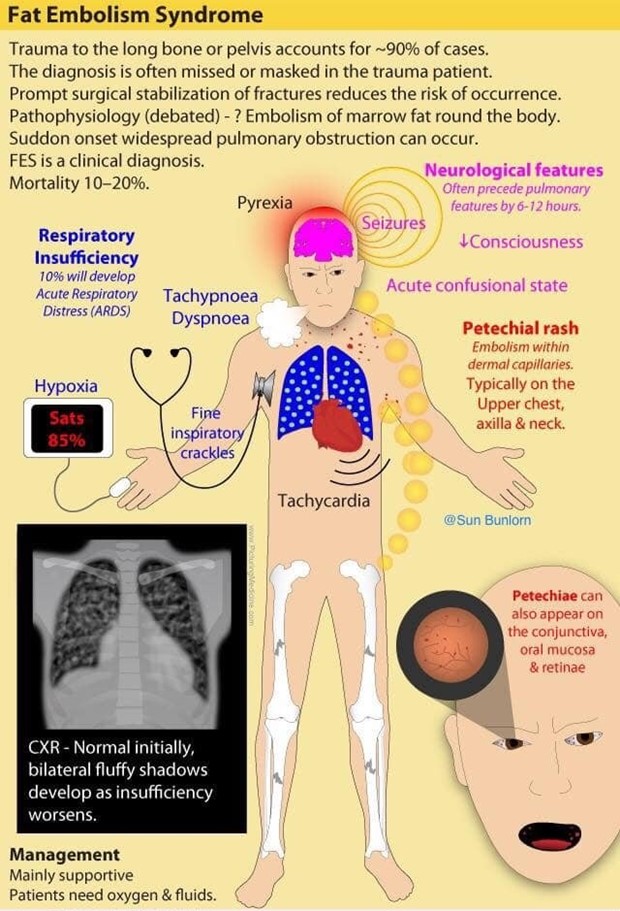Which symptom is most indicative of pneumonia in a 6-year old child?
Sore throat.
Tympany noted on chest percussion.
Auscultation of ronchi or fine crackles.
Temp of 37.8 Celsius.
The Correct Answer is C
Pneumonia is an infection that causes inflammation in the lungs. Auscultation refers to listening to the sounds produced by the lungs using a stethoscope. Ronchi and fine crackles are abnormal lung sounds that can be heard during auscultation in individuals with pneumonia.
These sounds are associated with the presence of fluid or mucus in the lungs, which is characteristic of pneumonia.
While other symptoms such as a sore throat, tympany noted on chest percussion, and a slightly elevated temperature (37.8 degrees Celsius) can be present in various respiratory conditions, the auscultation findings of ronchi or fine crackles specifically suggest an underlying lung infection like pneumonia.
Nursing Test Bank
Naxlex Comprehensive Predictor Exams
Related Questions
Correct Answer is B
Explanation
Acute adrenal insufficiency, also known as adrenal crisis, is characterized by low levels of adrenal hormones, particularly cortisol. One of the primary manifestations of adrenal insufficiency is electrolyte imbalance, specifically hyponatremia (low sodium) and hyperkalemia (high potassium). Inadequate cortisol levels can lead to impaired sodium reabsorption in the kidneys, resulting in sodium loss and low serum sodium levels.
When the patient receives appropriate therapies for acute adrenal insufficiency, such as administration of glucocorticoids (e.g., hydrocortisone), the cortisol levels begin to normalize. As a result, the impaired sodium reabsorption improves, leading to an increase in serum sodium levels.
Correct Answer is D
Explanation
Fat embolism syndrome can occur when fat globules enter the bloodstream after a long bone fracture, such as a femur fracture. The fat globules can travel to the lungs and cause respiratory distress and decreased oxygen saturation. The symptoms observed in the client, including tachypnea (labored breathing), decreased oxygen saturation (88%), and the presence of petechiae (small red or purple spots) on the neck and anterior chest, are consistent with fat embolism syndrome.

Fat embolism syndrome is a serious condition that requires immediate medical attention. Notifying the healthcare provider allows for prompt evaluation, confirmation of the diagnosis, and initiation of appropriate treatment. This may involve further diagnostic tests such as a chest CT scan, as mentioned in one of the options, to rule out other potential causes or complications.
Whether you are a student looking to ace your exams or a practicing nurse seeking to enhance your expertise , our nursing education contents will empower you with the confidence and competence to make a difference in the lives of patients and become a respected leader in the healthcare field.
Visit Naxlex, invest in your future and unlock endless possibilities with our unparalleled nursing education contents today
Report Wrong Answer on the Current Question
Do you disagree with the answer? If yes, what is your expected answer? Explain.
Kindly be descriptive with the issue you are facing.
